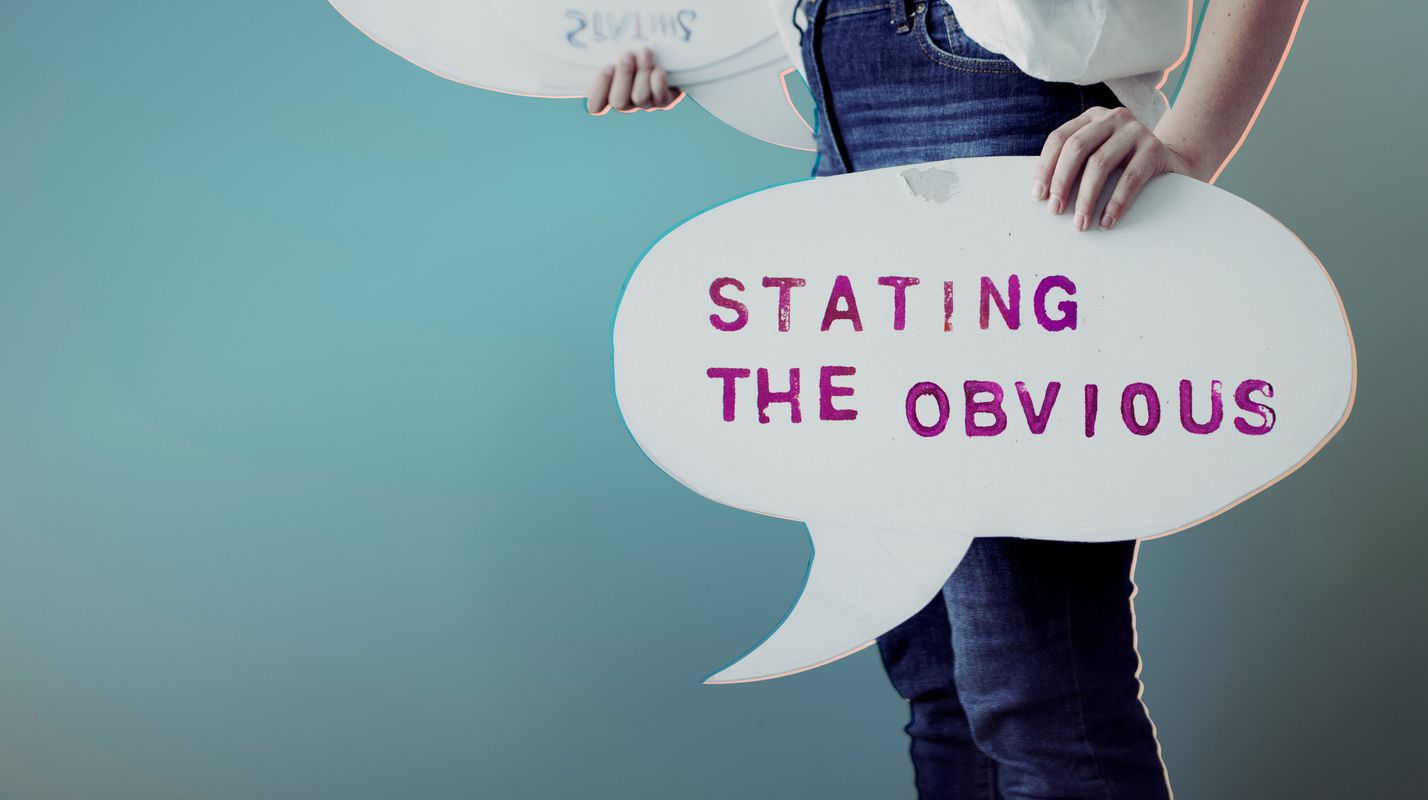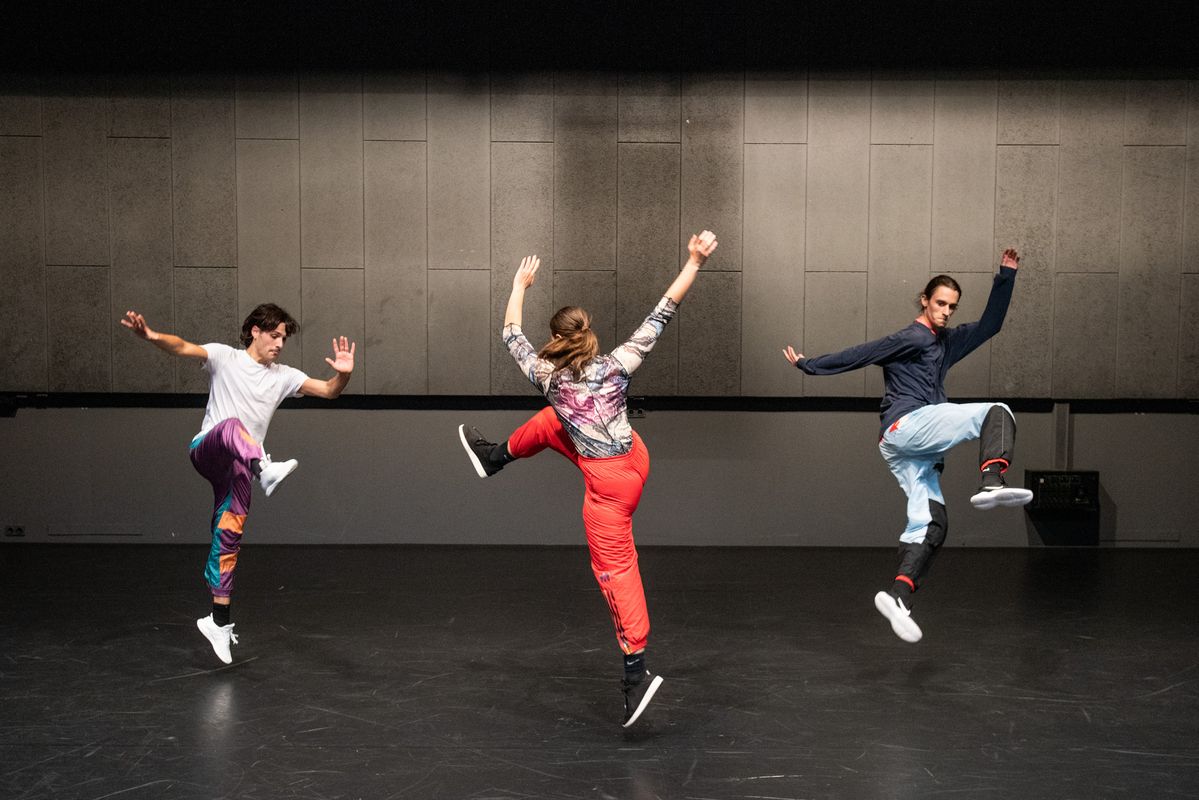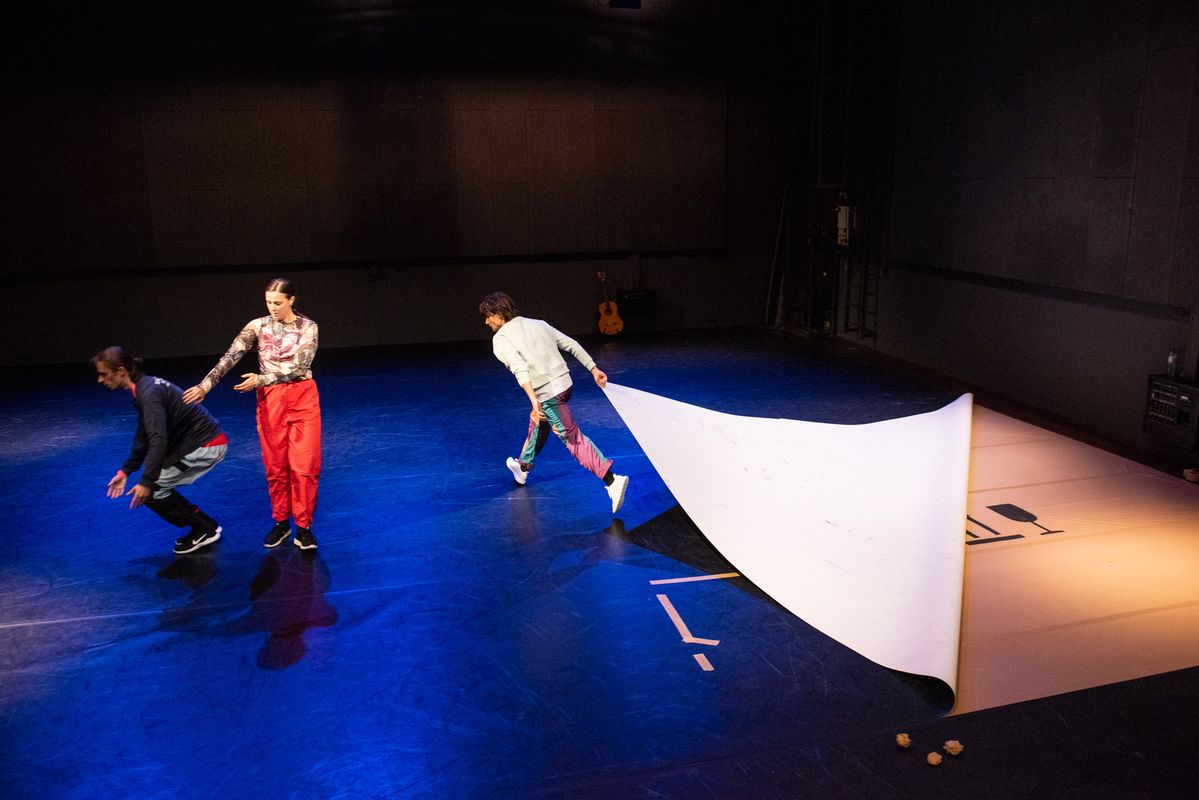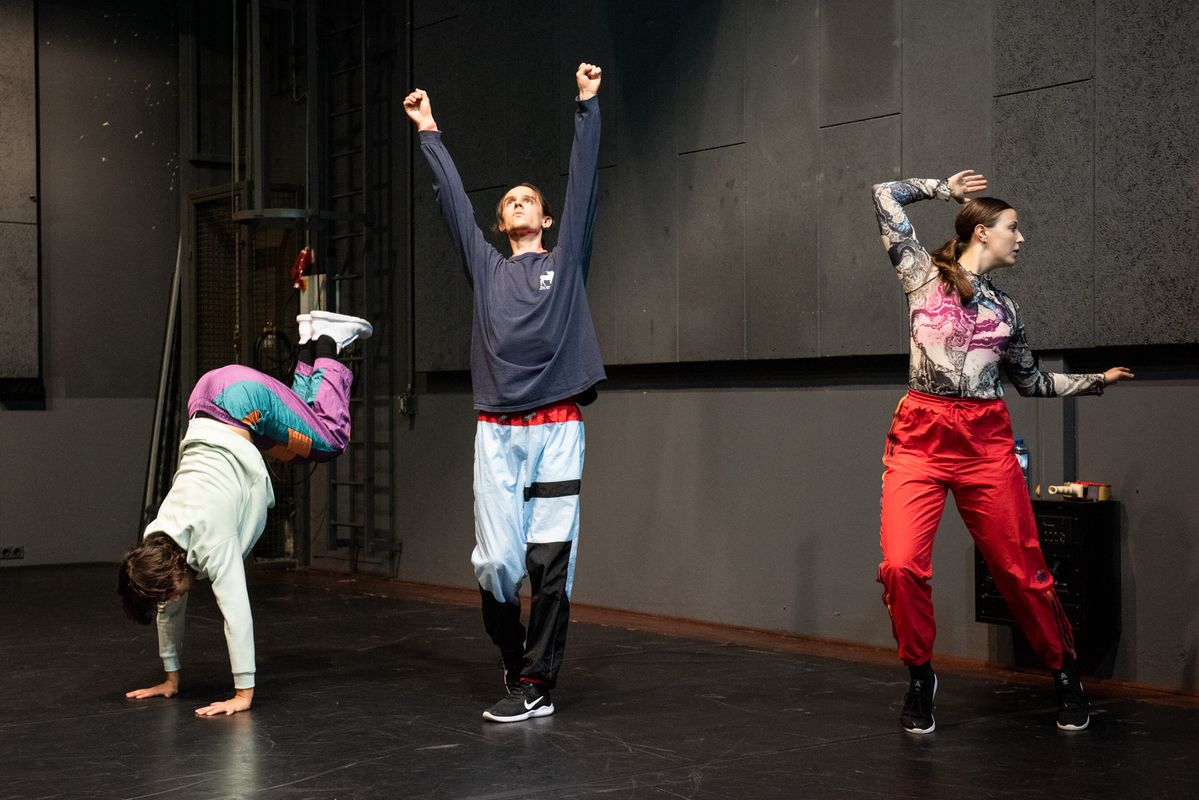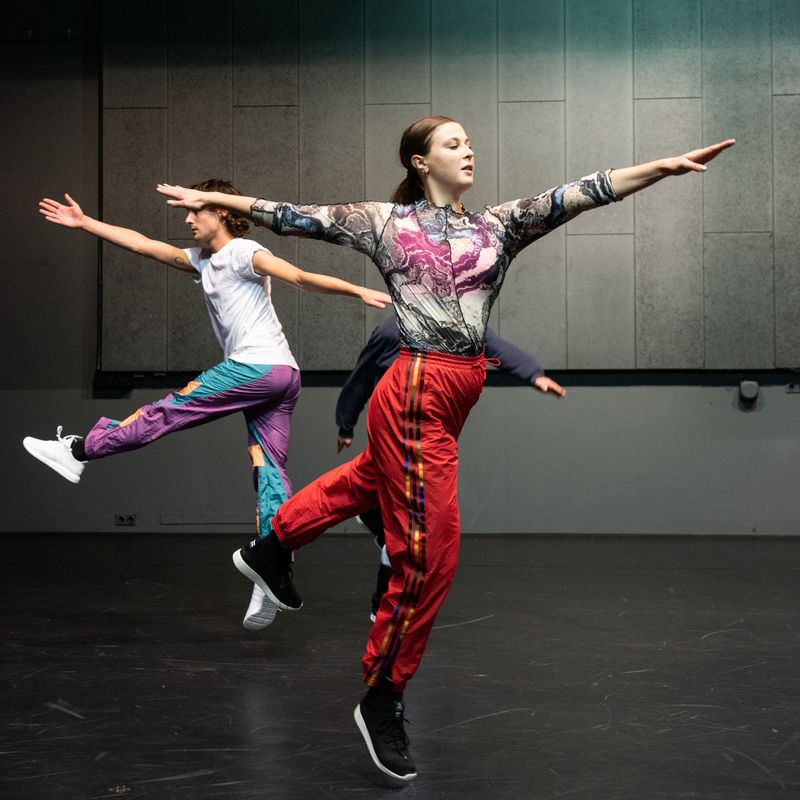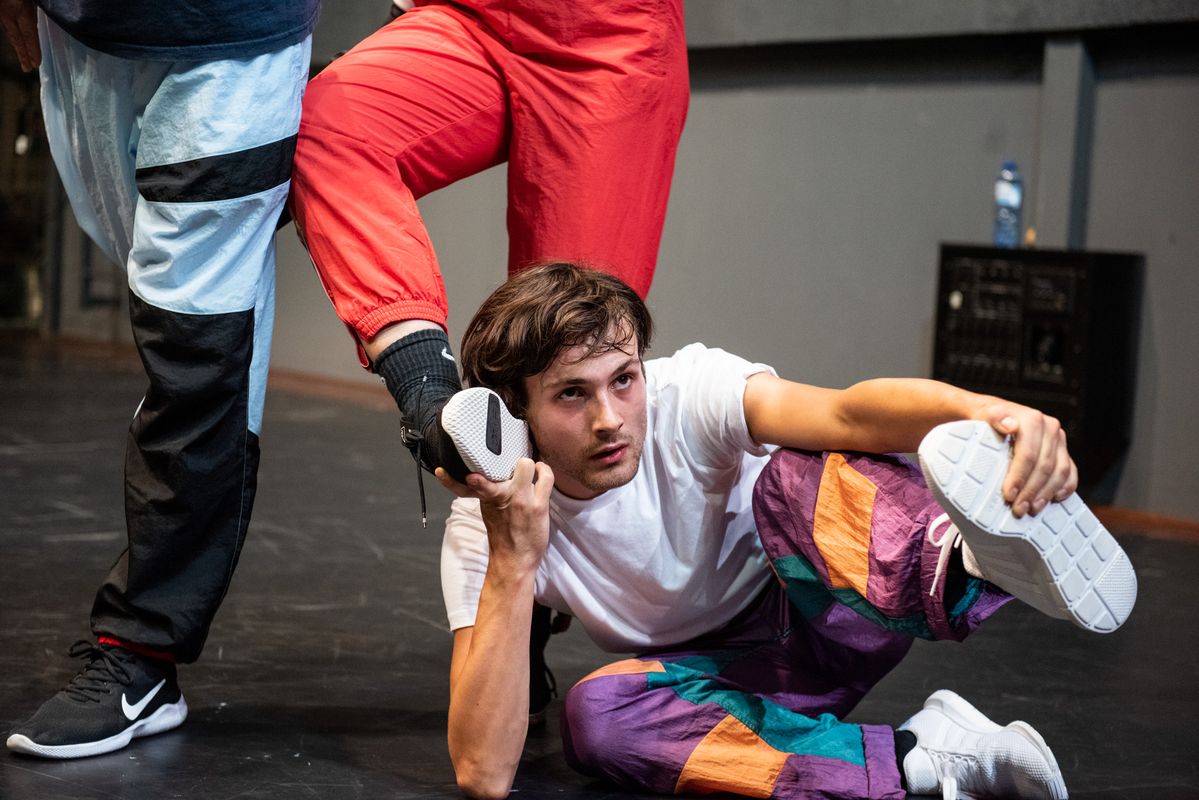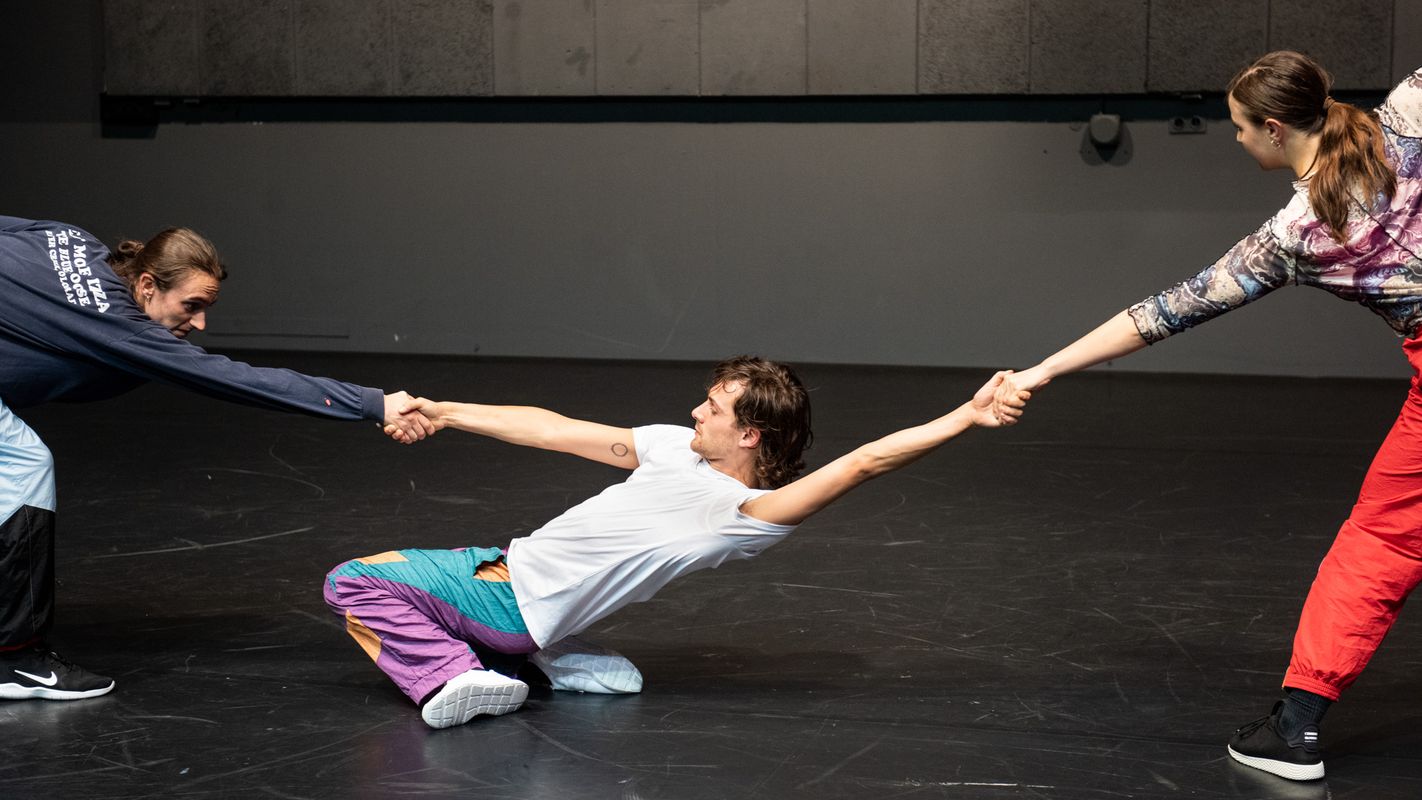Backstage | interview | Ingrid Berger Myhre

Can you tell us more about the show?
That’s a relevant question! While we were busy making this performance, we spend as much time asking ourselves what it was about. Not because we didn’t have a clue, but because that is essentially what the work wants to understand: Where do we place meaning in dance? How do we read choreography? And according to which given?
Your work is strongly inspired by dance, words and semiotics. What fascinates you about this?
Since I started to dance (quite late), it always amused me how mystical dance was expected to be; seemingly beyond language and intimately expressive. I always has the feeling dance is more straight forward than that. That it’s a matter of literacy: we don’t only watch dance, we read it. But if not according to the same formula and registers as verbal language, how then do we understand dance? What is the sense making (or rather sense sensing) process when we encounter movement? In my work, I have tried to understand this through the lense of semiotics, through the lense of poetics, and now through investigating the very process of dance making: what makes a dance a dance - and how does it read off in the context of the theatre.
Who inspired you by making this performance?
Némo Flouret, Georgia Boddez and Calvin Ferdinando Carrier inspired me in the making of this performance.
How did you come up with the name Stating the obvious?
Sometimes, a title is neatly placed over the finished work as a helping hand to guide your reading of the piece. But quite often, actually most of the time, the title precedes the studio work - born as part of the application writing process or as a leftover interest from a previous piece. This can be either a curse or a relief. In our case, it was a little bit of both. Stating the Obvious is a title that’s been hovering over the project from way before we entered the studio. It was brought to the table with a wink, as an impossibility: a statement always needs a context to make sense. And whether anything is obvious at all is highly questionable. To whom is it obvious, and from which perspective?
What do you hope people will remember from the performance?
In this piece, we are trying to use the simplest of words to say the more “obvious" things. We are trying to strip what a performance can be down to the bare minimum, to reveal the mechanisms at play in the theatre. The risk is of course that it falls short; of spectacle, of metafor, of magic. But I am more interested in what can be said with minuscules, in this theatre context that all too often asks for capital letters. And I hope that the transparency of three people doing things in front of other people - the basics of theatre - is enough to question why we see what we see the way we see it.


